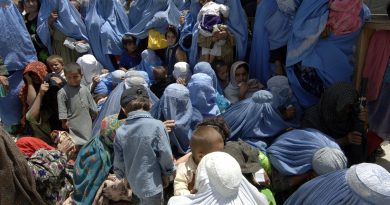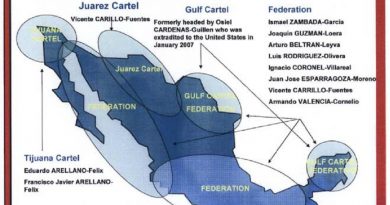Focus on Political Silencing: Russia
By Daniel D’Amico
Staff Writer
Many notable Russian citizens have suffered death by assassination, as reported by BBC News. The means vary, but the results are always the same. These murders, some more gruesome than others, have given Russia a certain negative reputation.
Boris Nemtsov, former co-chair of the Republican Party of Russia-People’s Freedom Party, was one of these victims. He was shot and killed on the Great Moskvoretsky Bridge in Moscow on February 27, 2015.
President Putin condemned the murder speaking with BBC News calling it “entirely provocative in nature.” Anzor Gubashev and Zaur Dadayev were arrested soon after it happened.
According to BBC News, there are multiple theories as to why the murders happened. Some say he was killed for his opposition to President Putin while others accredit it to his views on Russian involvement in Ukraine and the Charlie Hebdo massacre in Paris.
Well-known opposition leader and friend to Nemtsov, Alexei Navalny, Nemtsov’s daughter, Zhanna Nemtsova, believe the government to be guilty to some extent. Various Russian media sources pinned the blame on others outside of the country.
TV anchorman Dmitry Kiselev said that he thought the West had the most to benefit from his death. Similarly, the pro-government Izvestia newspaper claimed that Ukrainian secret service organized the murder through Chechen hit men.
An ex-KGB agent, Alexander Litvinenko, was another to be assassinated, though his death involved greater suffering.
According to CBS News, Litvinenko was poisoned after moving to London with what is known as Polonium 210. He died several weeks after in a hospital on November 23, 2006. Around the time of his death, not much was known other than the type of poison and his meeting with people whose identities were at that time unknown.
Recently, however, the investigation has resurfaced accompanied with new information on who poisoned Litvinenko. The Guardian states that Sir Owen’s reports show the poisoners to be Dmitry Kovtun and Andrei Lugovoi.
Prior to meeting with Litvinenko, signs of the poison were found in various places where they had resided. It is also said that they killed him on behalf of others, but who they are remains unknown.
Some speculate that Litvinenko’s associations with Boris Berezovsky and former Chechen leader, Akhmed Zakayev along with his work for MI6 may have made him a target. Putin denies allegations of his involvement in the murder.
There were others who died although not as much is known about their deaths. Sky News addresses others such as Boris Berezovsky, leader of the oligarchs before becoming an outspoken critic of President Putin.
He died in Berkshire, England as a result of supposed suicide although many question uncertain the cause, according to Sky News. Another critic of Putin was journalist Anna Politkovskaya who was shot dead at her Moscow apartment block on October 2006.
A human rights lawyer, Stanislav Markelov was gunned down along with journalist Anastasia Baburova when trying to help him in January 2009. This occurred after a press conference was held to protest the early release of an army colonel who murdered a Chechen girl. Markelov also represented Anna Politkovskaya in this conference.
The two questions that lack definitive answers in all of these cases are why were they killed and who gave the order. They were all critics of President Putin, but the government claims to have had no part in their deaths. In many cases the assassinations have been seen as a warning to those who oppose President Putin and the government.


